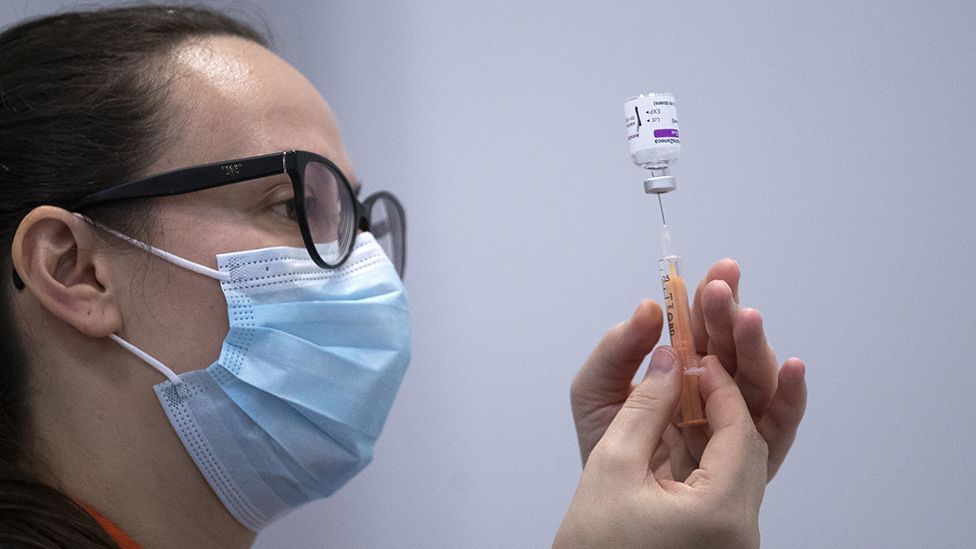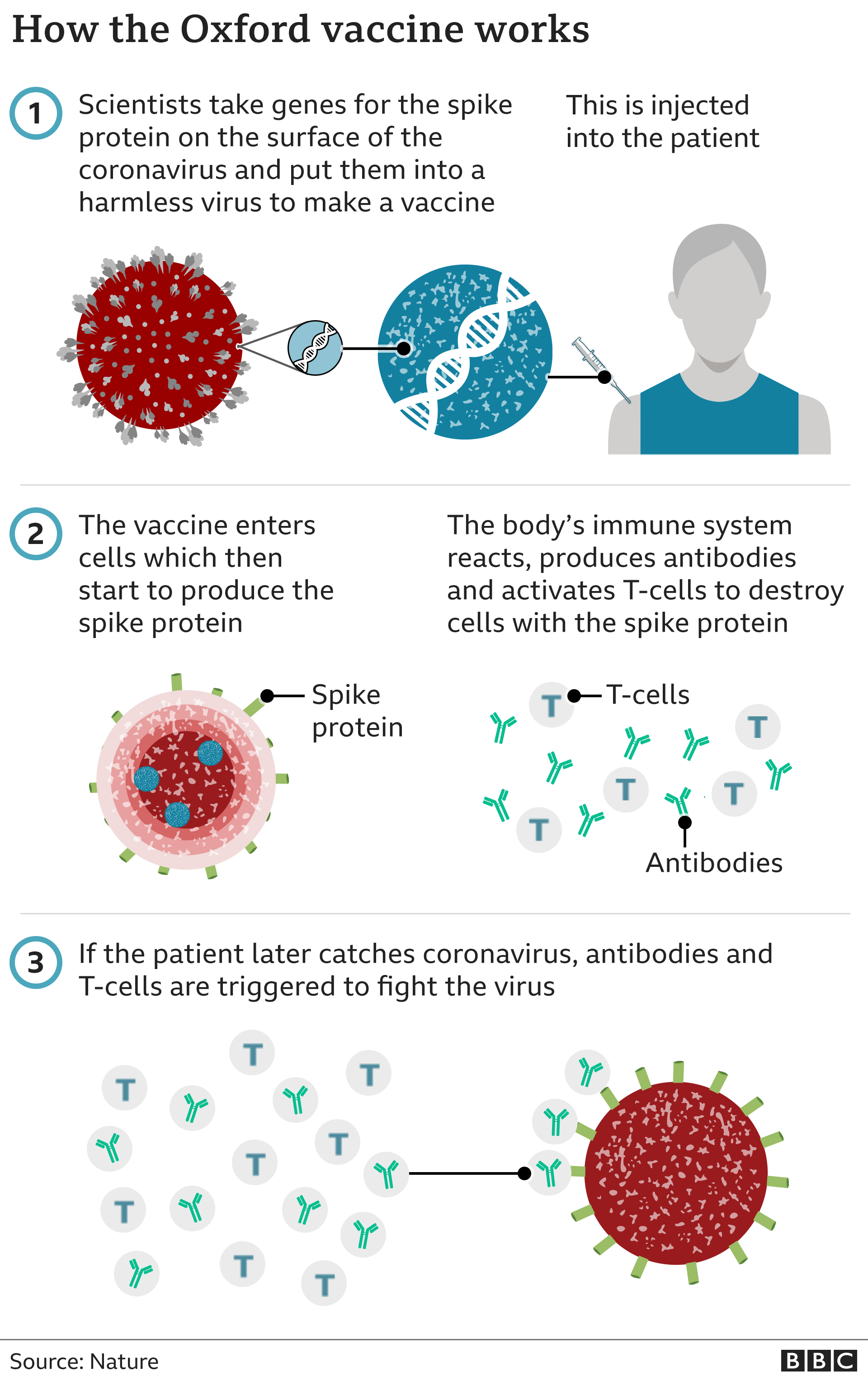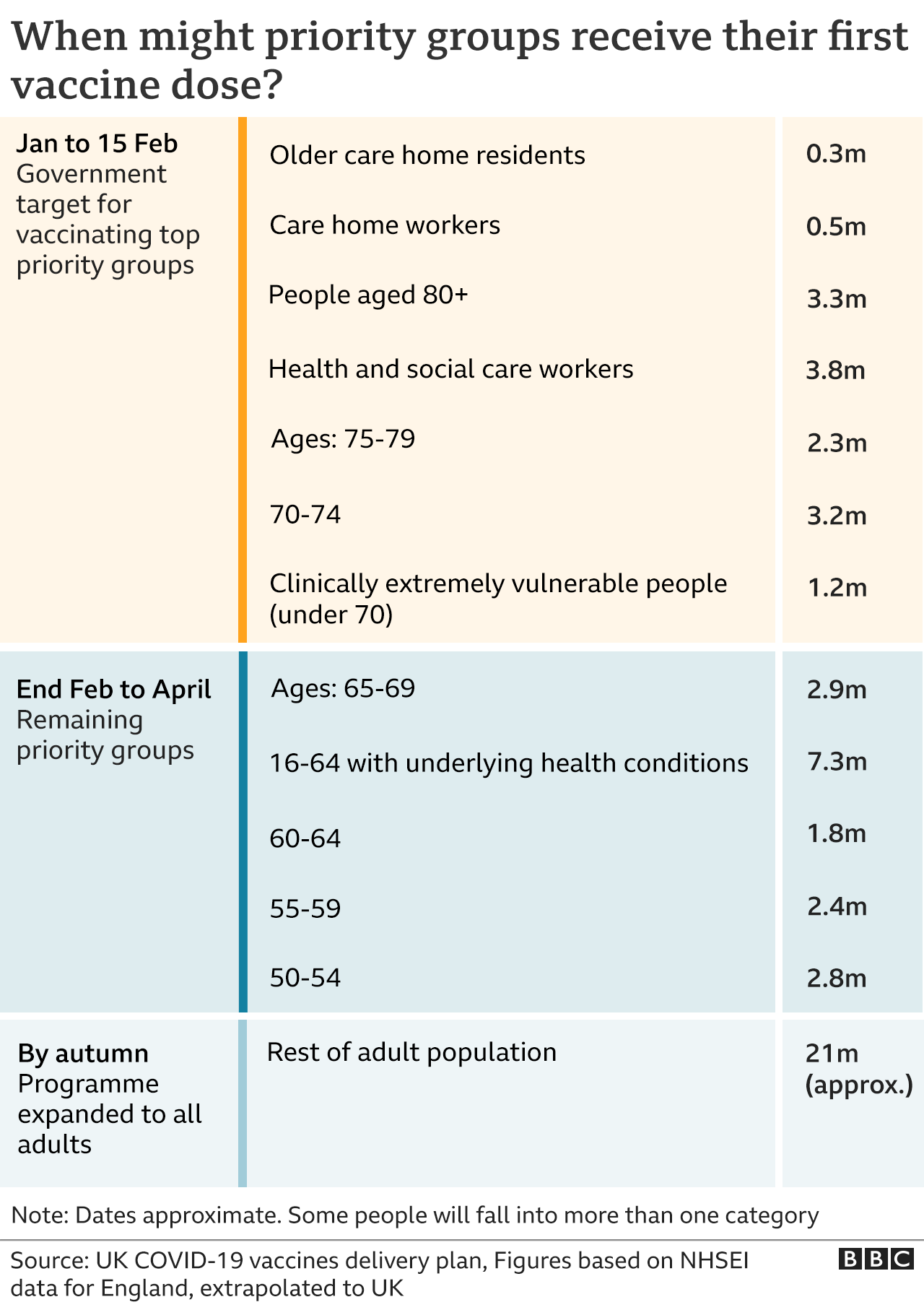Covid: What is the Oxford-AstraZeneca vaccine?
 image copyrightGetty Images
image copyrightGetty ImagesPeople have been urged not to delay getting the Oxford vaccine, despite concerns that it might be less effective against the South Africa Covid variant.
Early findings from South Africa suggest the vaccine may need updating to be a better match for some emerging new variants of coronavirus. This could be true for other coronavirus vaccines too.
However, the government's deputy chief medical officer, Jonathan Van Tam, says the "immediate threat" is from the UK or Kent variant and there is "plenty of evidence" the vaccines are effective against that.
Does the vaccine protect against new variants?
The South Africa study, based on about 2,000 young people who had the vaccine, suggests the Oxford-AstraZeneca vaccine offers limited protection against mild and moderate disease caused by the South Africa variant.
There is no evidence to suggest it would not be effective at preventing more severe cases that need hospital treatment.
In the UK, 147 cases of the South Africa variant have been identified and measures are being introduced to try to limit its spread.
There is no sign that the South Africa variant will become dominant in the UK, the government's deputy chief medical officer, Jonathan Van Tam, has said. The "immediate threat" is from the UK or Kent variant and there is "plenty of evidence" the vaccine is effective against that, Prof Van Tam added.
Research carried out in the UK found a single dose offered 76% effective protection for three months. The vaccine is given as two doses to provide the best protection.
UK scientists are working on new versions of the vaccine, to keep up with a virus that will inevitably keep mutating.
How does the Oxford vaccine work?
It is made from a weakened version of a common cold virus (known as an adenovirus) from chimpanzees. It has been modified to look more like coronavirus - although it can't cause illness.
Once injected, it teaches the body's immune system how to fight the real virus, should it need to.
Research has shown it is highly effective. No one given the vaccine in trials developed severe Covid or needed hospital treatment.
Unlike Pfizer's jab - which has to be kept at an extremely cold temperature (-70C) - the Oxford vaccine can be stored in a normal fridge. This makes it much easier to distribute.

Why are some other countries limiting their use of this vaccine?
South Africa has paused roll-out while it does more investigations on vaccines and the variant dominant there.
Germany, Austria and France are using the vaccine but are only offering it to 18-64 year olds, because there is limited data on how well it protects the over-65s.
AstraZeneca says its trial data suggests it works among over 65s. Earlier studies show older people, as well as younger people, appear to have an equally strong immune response to the vaccine.
The European Medicines Agency approved the vaccine in January for use in all age groups, including older adults.
Is the Oxford vaccine as good as the Pfizer?
Large trials showed the Pfizer vaccine was 95% effective, while the figure for the Oxford one was 62%.
But directly comparing results is difficult because there are differences in the way the trials were carried out.
And it's important to remember that even the lower 62% figure is a better result than the best flu jab, which is about 50% effective.
No-one who received the Oxford vaccine was hospitalised or became seriously ill due to Covid.
A recent study found a single dose of the Oxford vaccine offered 76% protection for three months, and this went up to 82% after the second dose.
How long do vaccines protect against Covid for?
It is not yet known how long protection lasts with any of the coronavirus vaccines.
A separate study found unvaccinated people are protected after catching coronavirus for at least six months. Vaccines are likely to provide stronger protection than this.
It may be that people need annual vaccinations, as happens with the flu jab.
Which vaccine will I get?
You will not be given a choice about which vaccine you get.
In the UK, recommendations on which groups get the vaccine are made by the Joint Committee on Vaccination and Immunology.



- TEACHERS: Are they are at risk with schools reopening?
- SOCIAL DISTANCING: What are the rules now?
- SUPPORT BUBBLES: What are they and who can be in yours?
- FACE MASKS: When do I need to wear one?
- LOOK-UP TOOL: How many cases in your area?



No comments